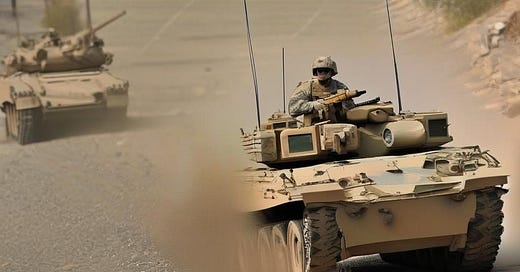Defending Constitutional Authority
Why Our Military’s First Loyalty is to the Founding Documents, Not Blind Obedience
In the United States, every service member swears an oath not to a person, nor to an institution, but to uphold and defend the Constitution. This principle is enshrined in the foundational documents of the United States and echoed in military law. However, recent debates highlight that some may overlook the Constitutional constraints on government power, suggesting that loyalty to orders, regardless of their constitutional merit, is paramount. This editorial argues that military members are obligated to reject unlawful orders and to prioritize their oath to defend the Constitution, as both the Founders and the Uniform Code of Military Justice (UCMJ) envisioned.
Historical Context and Foundational Principles:
The American Revolution itself stemmed from a refusal to submit to government mandates that were seen as oppressive and unlawful. The Declaration of Independence clearly articulates that governments derive their just powers from the consent of the governed, and that it is both the right and duty of the people to resist usurpations of their inherent rights. The Founding Fathers, through this document, established that individual allegiance to just governance and the rule of law is paramount.
The Constitution and Bill of Rights then codified these principles, constraining government power and protecting individual liberties. These documents define the relationship between the state and its people, insisting on checks and balances to ensure no branch—including the military or executive branch—exceeds its lawful authority.
The Oath to the Constitution:
All members of the military take a solemn oath to “support and defend the Constitution of the United States against all enemies, foreign and domestic.” Unlike many nations where the military’s loyalty is to a leader or government, the American oath binds military personnel directly to the Constitution. This distinction is vital; it underscores that loyalty is owed to the principles of the republic, not to any order that might contravene them.
This oath implies that soldiers must discern the constitutionality of orders. If they are asked to follow directives that undermine Constitutional rights or violate Constitutional limits on government power, they are obligated to uphold their oath by rejecting these orders.
The Uniform Code of Military Justice (UCMJ) and Unlawful Orders:
The UCMJ, which governs military conduct, reaffirms this principle. Article 90 requires service members to obey lawful orders. But it’s explicitly unlawful to obey orders that conflict with the Constitution, as enshrined in military law and precedent. A duty to refuse unlawful orders was established in the aftermath of World War II, as international law and military tribunals held soldiers accountable for crimes committed in “just following orders.”
Through these rulings, the world acknowledged a higher ethical and legal standard for military obedience, one that respects the rule of law and human rights over mere compliance. For American service members, this standard is further bolstered by the UCMJ’s support for the Constitution as the ultimate authority.
Modern Implications and the Duty to Uphold the Constitution:
As debates arise over controversial government actions, Americans must remember that the Founders, through the Constitution, equipped military members with a framework that demands adherence to lawful orders—not blind obedience. The Founders intended that each military member act as a guardian of American liberty, rather than a simple enforcer of government will.
Conclusion:
The call to service in the United States is ultimately a call to defend the Constitution and the liberties it enshrines. American service members are not mere instruments of authority; they are defenders of a specific, carefully constructed system of laws. When orders conflict with Constitutional authority, it is not only their right but their duty to resist. As citizens, we rely on the integrity of our military members to prioritize this oath, protecting our republic from internal threats to its founding principles.
What do you think?




